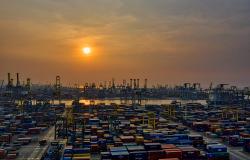
In recent decades, China has risen to prominence in the global economy with breakneck speed. Many have hypothesised that Chinese economic actors undermine the global drive to promote good governance in developing countries, and in Africa in particular, by disproportionately engaging economically with countries that suffer from poor governance outcomes. Using bilateral trade data, this paper explicitly compares how different aspects of African countries' governance levels impact their trade patterns with China and the West. It finds that African countries with better corruption controls and improved democratic development levels export more to the Western countries sampled, though the opposite is true with regard to their exports to China. Interestingly, democratic development is associated with greater imports from both the West and China, but the opposite holds with regard to respect for human rights. Finally, political stability has no significant impact on African trade—with either the West or China. However, when oil exporters are excluded from the sample, the relationship between political stability and African exports strengthens dramatically, which suggests that both Western and Chinese importers are willing to tolerate political instability to secure oil.
Policy Implications
- Corruption controls and democratic development impact African countries trade with China and the West differently—China imports relatively more from African countries that score poorly on these measures of governance, while the opposite is true for the Western countries sampled.
- Western governments must continue to support legislation aimed at preventing business practices among their firms that contribute to corruption abroad, as these laws appear to work.
- They should also support measures to support good governance beyond corruption controls, such as initiatives aimed at ensuring that no human rights violations took place in their companies’ supply chains.
- Beijing should enforce the Eight Amendment to the Criminal Law, which aligns with similar laws enforced in the West, to help ensure that Chinese firms are not contributing to corruption problems abroad.
- Political stability only impacts the exports of non-oil-exporting African countries, which suggests that both Western and Chinese importers are willing to tolerate political instability to secure oil.
Photo by Tom Fisk